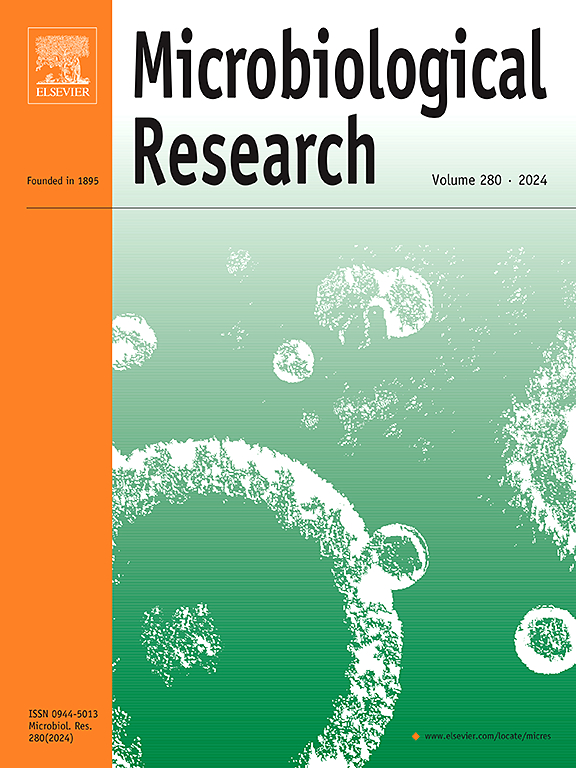Synergistic action of non-digestible xylooligosaccharide and Lactiplantibacillus plantarum ZDY2013 against high fat diet and streptozocin-induced type 2 diabetes mellitus in rats
IF 6.1
1区 生物学
Q1 MICROBIOLOGY
引用次数: 0
Abstract
Patients with type 2 diabetes mellitus (T2DM) often exhibit reduced Lactobacillus abundance, dysregulated immune responses, disrupted intestinal barrier integrity, and increased insulin resistance. Consumption of non-digestible oligosaccharides has been shown to support the persistence of Lactobacillus in the gut and improve gut homeostasis. Lactiplantibacillus plantarum ZDY2013, a probiotic capable of metabolizing various oligosaccharides, serves as a potent regulator of intestinal mucosal immunity. In this study, we investigated the potential ameliorative effects of xylooligosaccharides combined with L. plantarum ZDY2013 (synbiotic) on T2DM-induced intestinal injury and explored the underlying mechanisms. Our results showed that synbiotic improved glucose metabolism, reduced lipid accumulation, and alleviated insulin resistance in T2DM rats. Moreover, synbiotic outperformed L. plantarum ZDY2013 alone in restoring intestinal barrier integrity by suppressing oxidative stress and intestinal inflammation, while significantly enhancing the colonization of L. plantarum ZDY2013 and altering the abundance of key bacterial genera. Interestingly, synbiotic treatment also increased the production of short-chain fatty acids (SCFAs), which were strongly associated with specific bacterial taxa. Furthermore, gut microbiota-derived SCFAs were confirmed to ameliorate insulin resistance by promoting glucose uptake and glycogen synthesis in IR-HepG2 cells. Collectively, these findings suggest the potential use of synbiotics as a clinical intervention to ameliorate T2DM. This study provides a rationale for exploring dietary approaches as a mitigating strategy for managing long-standing diabetes.
求助全文
约1分钟内获得全文
求助全文
来源期刊

Microbiological research
生物-微生物学
CiteScore
10.90
自引率
6.00%
发文量
249
审稿时长
29 days
期刊介绍:
Microbiological Research is devoted to publishing reports on prokaryotic and eukaryotic microorganisms such as yeasts, fungi, bacteria, archaea, and protozoa. Research on interactions between pathogenic microorganisms and their environment or hosts are also covered.
 求助内容:
求助内容: 应助结果提醒方式:
应助结果提醒方式:


